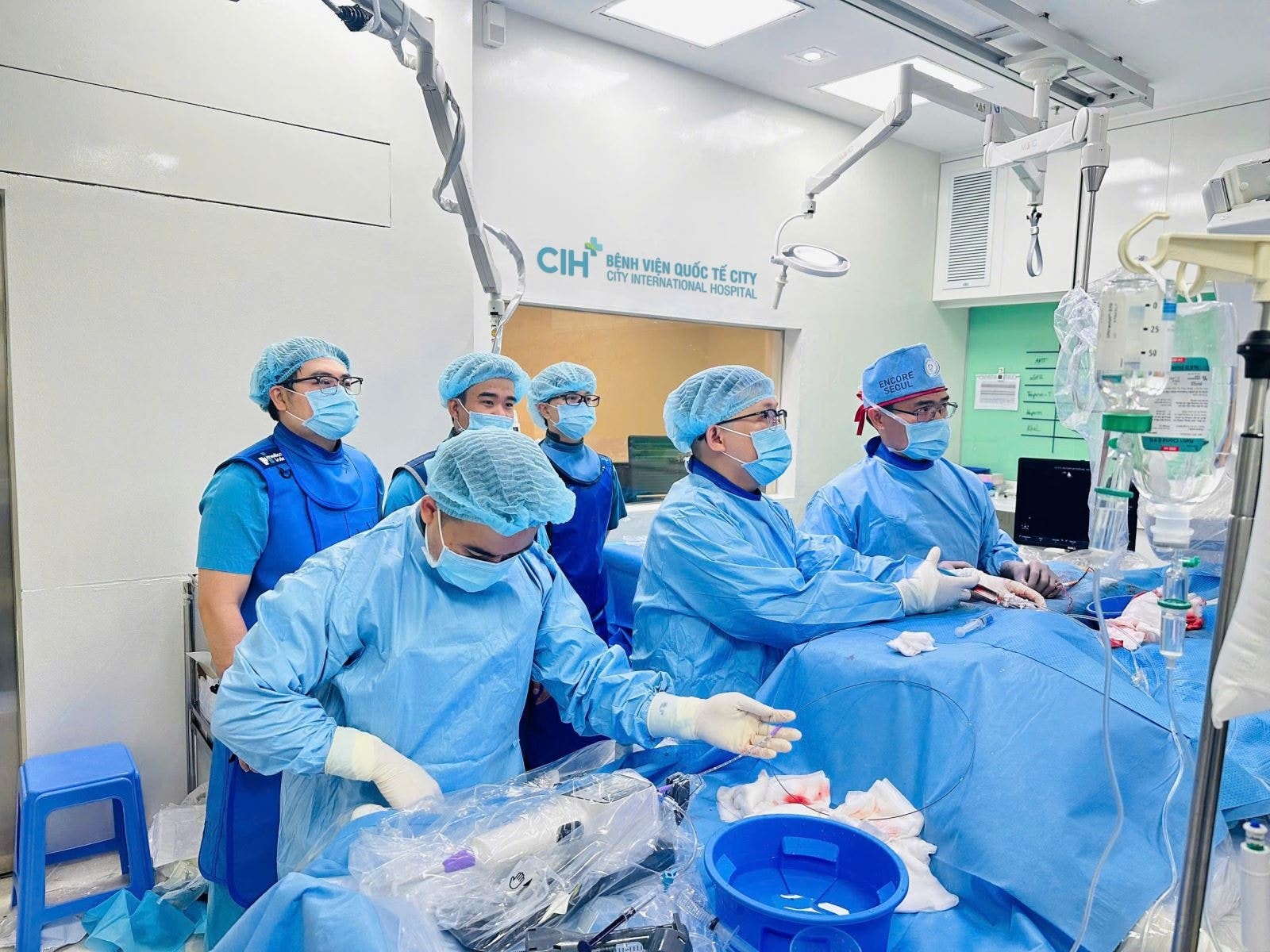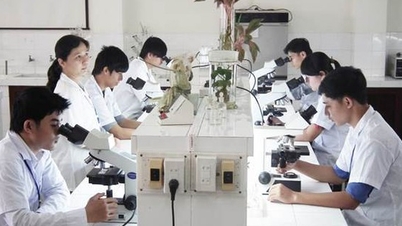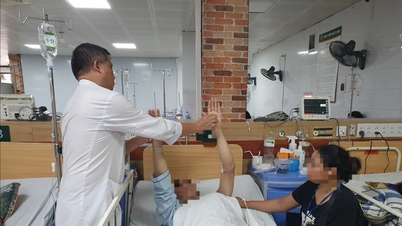
On September 11, specialist doctor Le Van Tuyen, Department of Cardiology - Vascular Intervention, City International Hospital said that the patient came to the hospital with frequent shortness of breath and difficulty in daily activities.
Transthoracic echocardiography results showed that the patient had a congenital atrial septal defect causing right ventricular dilatation and pulmonary hypertension. This is a type of congenital heart disease that causes abnormal blood flow between the two atria, increasing the burden on the heart and lungs. Many patients only discover the disease when it has progressed severely or accidentally during a routine health check.
“A large atrial septal defect can increase the amount of blood returning to the heart, forcing the heart and lungs to work harder. If left untreated, patients are at risk of complications such as arrhythmia, heart failure, pneumonia or stroke and many other dangerous complications,” Dr. Le Van Tuyen added.
At the Cardiology - Interventional Department, doctors performed a transesophageal echocardiogram to accurately assess Mr. Khoem Vancha's condition and decided to choose the technique of intervening to close the atrial septal defect with instruments. This is a minimally invasive procedure, does not require open chest surgery, only local anesthesia.
Accordingly, a small umbrella-shaped device is inserted through the femoral vein and placed in the correct position to close the hole. The method is considered safe, leaves no incision, reduces pain and helps the patient recover quickly. After just one day, the patient can return to normal activities, avoiding open chest surgery and the risks that come with it.
Specialist Doctor Le Van Tuyen said that compared to open heart surgery, the parachute closure method for atrial septal defect has many advantages such as being less invasive, faster recovery and fewer complications. This is the optimal choice for many patients, especially for adults who are diagnosed late.
Doctor Tuyen recommends that regular cardiovascular examinations are important, especially for those who often experience symptoms of fatigue, shortness of breath, chest pain or palpitations. Early detection helps in timely treatment, limiting dangerous complications later.
Source: https://baohaiphong.vn/nguoi-dan-ong-campuchia-khoi-benh-tim-bam-sinh-nho-ky-thuat-hien-dai-tai-viet-nam-520557.html


![[Photo] Discover unique experiences at the first World Cultural Festival](https://vphoto.vietnam.vn/thumb/1200x675/vietnam/resource/IMAGE/2025/10/11/1760198064937_le-hoi-van-hoa-4199-3623-jpg.webp)


![[Photo] Opening of the World Cultural Festival in Hanoi](https://vphoto.vietnam.vn/thumb/1200x675/vietnam/resource/IMAGE/2025/10/10/1760113426728_ndo_br_lehoi-khaimac-jpg.webp)

![[Photo] General Secretary attends the parade to celebrate the 80th anniversary of the founding of the Korean Workers' Party](https://vphoto.vietnam.vn/thumb/1200x675/vietnam/resource/IMAGE/2025/10/11/1760150039564_vna-potal-tong-bi-thu-du-le-duyet-binh-ky-niem-80-nam-thanh-lap-dang-lao-dong-trieu-tien-8331994-jpg.webp)




























![[Photo] Ho Chi Minh City is brilliant with flags and flowers on the eve of the 1st Party Congress, term 2025-2030](https://vphoto.vietnam.vn/thumb/1200x675/vietnam/resource/IMAGE/2025/10/10/1760102923219_ndo_br_thiet-ke-chua-co-ten-43-png.webp)





































































Comment (0)